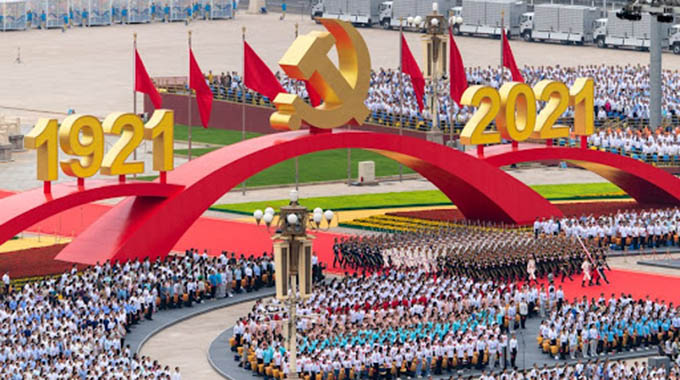‘Whole Process Democracy’ to challenge, inspire Africa

Lizwe Nyoni Correspondent
China’s new concept of ‘Whole Process Democracy’ is far richer and more valuable than merely being a timely counterweight to the United State of America’s Democratic Summit event this week and the synonymous Western-type democracy.
Shorn of the present context of a perceived ideological battle between the two powers, the idea of a new interpretation of democracy could have powerful resonance among countries of the world for a long time to come.
With powerful philosophical underpinnings that China has done well to enunciate, explain, rationalise, clarify and promote, the concept of Whole Process Democracy could easily be China’s new zeitgeist.
There is a clear thread that is running the theory of a governance system made in China for China and its people. There is no doubt that under the leadership of the Communist Party of China, the new system will take root and flourish beyond China.
It is a brave beginning in many respects. For African countries, it is time to watch closely.
No doubt, Africa has been both ill-served and abused by, and in the name of, democracy as propagated by the West.
China’s redefinition and reconfiguration of democracy could inspire African countries to also look inside—as China has largely done—for locally-honed systems; or to borrow expressly from China’s system.
Similarities
China and Africa share a lot of similarities—even with African countries being themselves diverse.
Fundamentally, Africa’s values and practices of community, justice, fairness, participation, equity and so on, are similar to China’s.
Traditional governance systems in Africa practiced traditionally and in the present, where hybrid models are often employed to serve various tiers, have strong similarity with China.
Western democracy and systems such as justice and politics changed significant aspects but barely touched others. This could yet bolden Africa to rethink elevating some well-worn traditional democratic systems and adopt new ones, inspired by the Chinese example.
For, in light of the failures of democracy—including in the US itself as well as its allies from Saudi Arabia to Angola—the disillusionment should give rise to demands for new thinking.
The resultant solutions should give a good measure of satisfaction and longevity.
This is where countries in Africa now have to look to China and its groundbreaking concept of Whole Process Democracy.
According to the concept: ‘Whole-process people’s democracy integrates process-oriented democracy with results-oriented democracy, procedural democracy with substantive democracy, direct democracy with indirect democracy, and people’s democracy with the will of the state. It is a model of socialist democracy that covers all aspects of the democratic process and all sectors of society.”
China recognises that democracy is a concrete phenomenon that is constantly evolving. It is rooted in history, culture and tradition, it takes diverse forms and develops along the paths chosen by different peoples based on their exploration and innovation, according to the proponents of the phenomenon.
Further, democracy is the right of the people in every country, rather than the prerogative of a few nations, according to a white paper on the concept.
Garden of civilisations
What is clear is that China, under the CPC, is seeking to have democracy take a diverse form, which will result in nations of the world respecting each other in line with multilateralism.
The white paper asserts: “Whether a country is democratic should be acknowledged by the international community, not arbitrarily decided by a few self-appointed judges.
“There is no fixed model of democracy; it manifests itself in many forms . . . In the richly diverse world, democracy comes in many forms…in the garden of civilizations.”
This is profound.
China has what is arguably a solid and progressive system, but it has the decency and modesty to be an equal among many.
China and Africa are both ancient civilisations that are older than America, which is barely 300 years, and equivalent to the life of a single dynasty that ruled China or Africa in the past.
China’s recognition of diversity—under the Whole Process Democracy— accords well with some of its key principles of non-interference in internal issues of other countries and desisting from seeking to impose its will on others.
The question will remain as to whether China seeks to achieve global soft power and hegemony or not, and whether Whole Process Democracy is its idea of reshaping the world.
The issue, however, is that the cogency of the Chinese ideas require less persuasion and will no doubt inspire more countries in Africa.








Comments